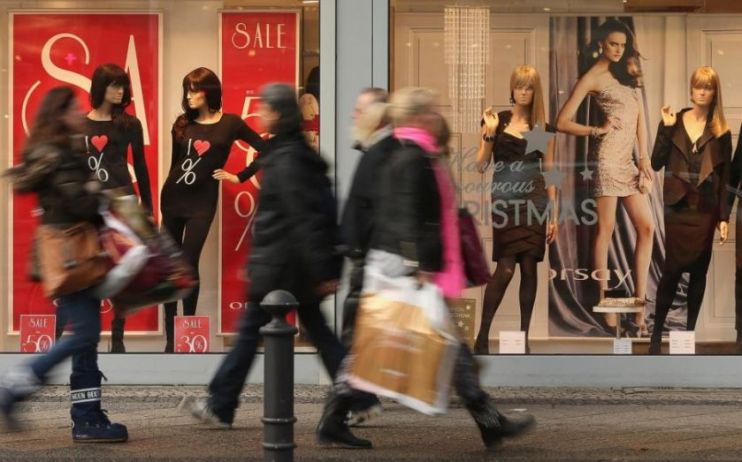Shops’ tax bill 755 per cent higher than online rivals amid war of words over sales tax

Traditional brick and mortar retailers pay 755 per cent more – almost eight times – than their online rivals in business rates tax.
The figures come after Sainsbury’s and Marks and Spencer execs have voiced differing opinions over the prospect of an online sales tax.
Fresh analysis by real estate advisor Altus Group has found that some £2.91 of every £100 earned by British retailers, excluding non-store sales and fuel. However, large online retailers pay just 34p for every £100.
The government’s consultation into an online sales tax, which some retailers hope would level the tax playing field between physical and online retail, closed last week.
A revenue-based online sales tax of one per cent on the online sale of goods to UK customers above an allowance of £2m could raise around £1bn a year, Altus Group analysis found.
“Ring fencing that revenue and targeting it to actually cut rates for retail, leisure and hospitality premises could lead to a reduction in rates of about nine per cent,” Robert Hayton, UK president at Altus Group, stated.
“No solution will be easy nor perfect but, if left unchecked, could lead to the substantial extinction of the high street and the erosion of local communities,” he said.
Last week, the BBC reported that Marks and Spencer CFO Eoin Tonge wrote to the Chancellor and urged him against an additional tax on “already overburdened” firms.
“Consumers today expect to benefit from multichannel shopping and you can’t simply tax them back to the high street,” the letter reportedly stated.
“The only way to provide long-term support to our high streets and retail centres is through a fundamental reform of business rates to reduce the crippling burden on bricks and mortar retailers.”
Landsec, the owner of the Bluewater and Gunwharf Quays shopping centres, also said it did not support the tax.
“It is an expensive and inefficient way to shift the tax burden from one part of retail to another while failing to address any of the structural challenges facing the sector,” Mark Allan, Landsec chief executive, said.
However, Kevin O’Byrne, the chief financial officer at Sainsbury’s, said that high business rates for shops were “destroying high streets up and down the country,” The Guardian reported last week.
O’Byrne called for “fundamental business rates reform” with an online sales tax that would fund a reduction in rates “for retailers of all sizes and levels the playing field between physical and online retailers.”
In a joint letter to the Chancellor earlier this month, supermarket giants including Morrisons and Co-op, pleaded for a “meaningful cut” to business rates.
Under a new Cut the Shops Tax campaign, organised by the Retail Jobs Alliance, retail firms – including Greggs and Tesco – said they were open to an online sales tax as a means to even the playing field of the overall tax system.
“This would help to level the playing field between online and bricks-and-mortar retailers at a time when Covid-19 has accelerated shifts in retail which were already in evidence before the pandemic,” the letter stated.
Some 89 per cent of retailers supported a new tax, as long as it eased the business rates burden according to a survey by property experts Colliers.